Books I’ve Tried To Read And Can’t Get Into
 I have a pile of novels on top of one bookshelf consisting of books I started to read and stopped. In fact I have one book from my church library that I’ve continue to renew since January! (No one’s put a hold on it, so I’m safe). At some point, I either have to plow through or admit defeat, but I postpone that decision with my little stack.
I have a pile of novels on top of one bookshelf consisting of books I started to read and stopped. In fact I have one book from my church library that I’ve continue to renew since January! (No one’s put a hold on it, so I’m safe). At some point, I either have to plow through or admit defeat, but I postpone that decision with my little stack.
Most of these are speculative fiction; some are gifts. I should read these books. They’re my genre and someone I know thought I’d like them. But so far, I’ve not managed to get past . . . wherever I stopped reading.
In this regard, speculative fiction is no different than any other fiction. The author has to grab readers early and hold on. But the challenge might be greater. Speculative writers must give some attention to world-building, so readers will understand the way things work in this imaginative place—whether it’s in space or in a parallel world or in this world some hundreds of years in the future.
In that world-building, the author can sometimes forget that the story needs to move forward if the reader is to stay engaged.
So here are some of the books in my “I tried to read” stack.
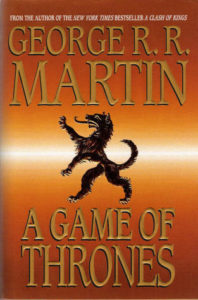 * A Game Of Thrones. Yes, yes, I know it’s horrible that I as a fantasy writer haven’t read A Game Of Thrones. I’ve tried three times and the last time managed to get through the prologue. I understand it’s a dangerous world, but from the start, I’m not connecting to a character. I don’t have a reason to keep going (other than that I think I should).
* A Game Of Thrones. Yes, yes, I know it’s horrible that I as a fantasy writer haven’t read A Game Of Thrones. I’ve tried three times and the last time managed to get through the prologue. I understand it’s a dangerous world, but from the start, I’m not connecting to a character. I don’t have a reason to keep going (other than that I think I should).
* A Christian science fiction. I got half way through this 350 page book. I had no intention of stopping—my bookmark is actually in the middle of a chapter. But obviously the story didn’t keep me wanting to know what would happen next. I suspect I didn’t find enough tension to drive me on to the next page and the next and the next.
* Adam, Christian horror. I don’t know that I got past the opening page introducing a serial killer. It might be a good book. It might be well written. It might have an engaging character and a plot that pulls readers forward. I just don’t like reading about serial killers.
* Shaman’s Crossing. I should like this book. I don’t remember actually starting it and there’s no bookmark, but the first word is “I.” For a long time I really didn’t care for stories told in the first person. I’ve had to read a number of them now—for contests and critiques and edits and blog tours—so I’ve gotten over my antipathy, but I suspect when I first opened Shaman’s Crossing, I closed it again because of the point of view.
* The Runes Of The Earth. This is book one of The Last Chronicles Of Thomas Covenant. I’d read Stephen Donaldson’s two previous Thomas Covenant trilogies and was so excited to read this one. Until I started. My bookmark is on page 37. I’d have thought by that time I would have connected with a character or been captured by a story question. Nope and nope.
* A self-published fantasy. Wonderful voice, though I had to start a couple times. Each time I got a little farther until I stopped mid-chapter—page 61. As I recall, the character didn’t particularly want anything. Rather, stuff was happening to her. I didn’t have a reason to get in her corner and cheer her toward a victory.
* Another self-pubbed book. This one opened (in first person) with a confusing paragraph. I was struggling to sort out who the I and you and other strange-named characters were.
* Yet another self-published book. This one, I’m not sure I got past the cover. Inside the book looks professional, even has a map (which I consider a must for fantasy), but it looks to be an angels book. Maybe it isn’t, but that’s what it looks like, and I have never cared much for angel books and have truly developed angel weariness.
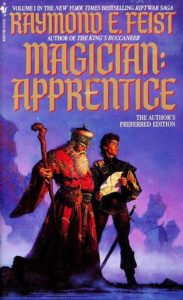 * Magician: Apprentice. I should like this book. Maybe I will like this book. I got it when I already had a number of other books to read, and the opening simply didn’t grab me. On page one, the character (who I assume to be the protagonist) catches some sea creatures then falls asleep. I should keep going, get further, find out why a friend recommended this book to me.
* Magician: Apprentice. I should like this book. Maybe I will like this book. I got it when I already had a number of other books to read, and the opening simply didn’t grab me. On page one, the character (who I assume to be the protagonist) catches some sea creatures then falls asleep. I should keep going, get further, find out why a friend recommended this book to me.
There are others in my stack, but this is enough. Here’s what I’ve learned from these books I’ve tried to read:
* In fiction, something needs to catch my attention. Sometimes, or maybe most times, a friend’s recommendation will do that—which is why I have these books in the first place and why I gave them a try at all. Sometimes, though, a blurb about the book will sell me. I’m less sold by a cover, but I realize I can be turned off by a cover.
* I need to engage with a character very quickly. If I don’t get a sense of who the protagonist is, I don’t care enough to keep going. (And surprisingly, I find it harder to get to know a first person narrator than I do a third person point of view character).
* I need to know what the character wants, at least short term, so I can hope for his success as he goes after it.
* I need some kind of tension pushing the story forward, generating a desire for me to keep reading so that I can find out what happens.
* I need the first page to grab my interest, and I need the chapters further along to hold it. I realized, for example, that Stephen Donaldson writes with a much more flowery, descriptive style than what I’m used to. I’m sure his early trilogies were in the same style, and I remember skimming passages that were too hard to follow. Now, however, I’m not patient enough to deal with his writing style. I’m not hooked into the story or invested in a character, so I’d rather find something else to read.
What about you? Share your reading duds. Have you started books you haven’t finished? (Please don’t give titles or authors if you think it would embarrass them). Do you know what made you stop reading? Do you try and try again until you get into a book? (I actually think I could finish all these if I’d stick with them—probably why I have the stack I do). Have you persisted with some book and discovered it’s a keeper, one you’re glad you read and would recommend to others (with the caveat that they must push past a slow opening)? Feel free to tell us what books those are.
I’m looking forward to hearing from you.


































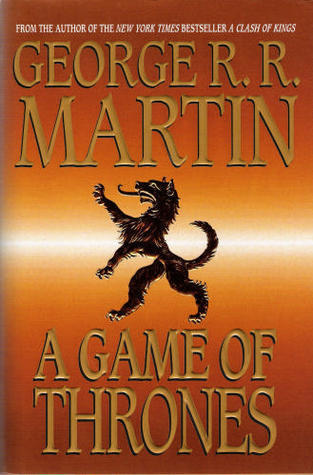

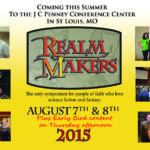
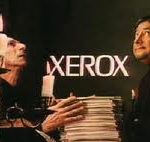




I also never finished Game of Thrones – I got quite a bit further, maybe even halfway, before stopping. While I was reading it, I couldn’t put it down, despite the fact that everything about it was horrible and depressing and I disliked it intensely. But it was gripping so I read on. But then life happened and I had to put it down – feeding the family or running errands or some such. And I decided not to pick it back up when I disliked it so much, regardless of how popular it may be.
Another recent DNF was Christian historical romance. I had high expectations for this one as it is marketed as being different from the unrealistically-chaste norm. And it was. But I hated pretty much every character – they were cowardly, obsessive, unfaithful – slime. And the story just went on and on but I plugged away until I thought it must be close to wrapping up. This was an ebook so I checked my progress and discovered I was only halfway through. And that was the final straw – no more for me.
There was another one recently I did manage to finish but only through sheer grit and I wish I had put it down when I noticed I was 60 pages in and still hating the characters. They were shallow, vindictive and yet supposedly Christian – and while the vindictive part eventually changed, their shallowness never did.
GoT really isn’t that good a series. It wasn’t until the TV program happened that it exploded: the first book debuted in 1997 and was overshadowed by The Wheel of Time series. There’s a strong “fake geek” tendency with that one, because I think people who have read a decent amount of epic fantasy realize it’s not that good, although it’s not bad either.
So glad to know, David. At least if I don’t get to TGoT, I won’t feel guilty any more. 😉
Becky
Oooohh, Sparksofember, I didn’t even think about the ebooks I’ve started and didn’t finish.
I’m with you when it comes to hating nearly every character in the book. That’s a deal breaker for me too, but sometimes I think surely the main character will reach a turning point and do something that will win me over. I hate when they don’t!
Becky
What things turn me off?
-angel books
-alternate retellings of Bible stories, unless you go full-on insane with them. Joseph piloting a giant mecha, etc.
-generic high fantasy. There has to be something that hooks me. Maybe it’s a different kind of magic system, or a moral question (what happens when a Christian analogue in a fantasy world has a talent for spells? Can dragons be saved?) but you need to have more than prince and princess goes off riding.
-girl in dress books. They can be good, but a lot of Christian authors really aren’t over the top enough to make them work. Generic butt-kicking women in princess dresses, usually. Fighting bland foes in dystopian societies with little edge to them.
Tosca Lee writes Biblical fiction really well—except I’m a stickler for staying with the Biblical narrative when we in fact know it. She tends to stray in subtle ways that bother me, but as far as her storytelling, it’s so believable. I’m thinking particularly of Iscariot.
Not sure I understand “girl in dress books.” Are you talking about the cover has a girl in a dress or that a girl in the book wears a dress? Confused, I am.
And generic anything in fiction is problematic, I think. Just saying. 😉
Becky
I wouldn’t presume to speak for D.M. Dutcher, but I rather gathered that these are the “Disney Princess” of Christian novels. Something that, on its own merit, is not necessarily a bad thing, but may lean more towards fairytale romance than epic worldbuilding or strong characters. Not that these characters cannot be strong; overtly feminine themes can be illuminating and worth exploring in their own right. But there is a difference between the character conflict in, say, Cinderella, and the character conflict in Lord of the Rings. Both may be resolved similarly, but for vastly different reasons.
Kind of that. Maybe more modernized, in which Cinderella kicks butt on her way to the ball, but similar wish fulfillment. The Hunger Games is the biggest example of that; Katniss as belle of a rather violent ball, but a ball none the same.
My bad. Girl in dress means usually a YA or adult fantasy/paranormal/dystopian book with a girl in a dress on the cover. The adult version sometimes exchanges that for “girl in jeans with tattoos on the cover.” Usually YA level writing or series fantasy level writing.
The bible stuff…the link to my blog here is about my frustrations with that. I don’t think anyone can really add anything to the Bible stories, and there’s a serious issue of “adding to the gospels” just by the way you choose to tell the tale. A good example of this was the movie The Ten Commandments, which made Moses out to be an idiot. If he truly was next in line for the throne of Egypt, he could have just stayed there and freed the slaves or eased their burdens himself. I think the Bible shows he’s more of minor nobility, which makes much more sense. I’d be really afraid of writing about the Bible that way; my own views shouldn’t creep in to Scripture like that.
Re: Adam — I live nearly everything Dekker’s written, and actually enjoy serial killer novels,but I also couldn’t get all the way through this. I think it’s just not a strong work. Hey, ya gotta have ONE weak link. Amirite?
Randy, you’ve put my mind at ease. If all indications are a go for you and you still didn’t think this one was a winner, well, for me with my stop sign . . . probably this book really isn’t for me. Yep, urrite.
Becky
I used to pride myself in always finishing a book, no matter how bad I thought it was. I don’t do that anymore. My time is valuable, and I don’t have a lot of spare time, so I want my reading time to be engaging and fulfilling.
I’m finding more and more books that have fabulous plots are disappointing. And they are pretty much all self-pubbed (which we now call Indie Publishing.) Well, not all … Shelley Adina has a wonderful steampunk series that she self pubs, and even does her own covers and editing. I can’t wait for the next one to come out and I will be disappointed because it will be the last one.
Like all of us, I want to care about the characters. I want to be surprised when the plot twists – just when I think I know what’s going to happen. And I don’t mind if I’m not surprised if I love the story/characters. I also like it when the story makes me ponder something.
The only angel novels I’ve ever been able to stand are Frank Peretti’s This Present Darkness and Piercing the Darkness.
I was the same way until I read Prophecy of the Heir. Then that spoiled me on any other angel novels.
Thanks for the suggestion, Robert. I’ve written it down and will look into it.
I agree much of what we would write about angels in fiction would be speculative. What I liked about Peretti’s books is how it made me rethink the power of prayer.
In the same way that Peretti’s books made me think of the power of prayer, Lamont’s made me think of the interconnected nature of history and the patterns of spiritual warfare that can be discerned from a bigger picture. Lamont’s The Chronicles of Time (starting with Prophecy of the Heir) are more like The Lord of the Rings than This Present Darkness, both in scope and approach. But you will get the same sense of seeing the story behind the story, and I guarantee it will make you see some familiar tales with entirely new eyes.
Now I’m *really* excited to get it! But frustrated because I have an editing job to finish and a novel to read for a friend who asked me for a review. If I start reading for pleasure, I’ll push all that aside. 🙂
Pam, when Peretti’s books came out, the idea of physically showing spiritual warfare seemed so new and fresh. I liked those books a lot, but I’ve read some bad books since, and some which feel too much as if they are Peretti spin-offs. It’s kind of like writing epic fantasy in the mold of Tolkien. Not that I’m equating Peretti as a writer with Tolkien.
The other problem with them is when the author speculates in a way that contradicts the Bible. That really bothers me. It’s hard, I think to write about angels and demons and stay true to what the Bible says about them, I think.
I used to finish every book too. It never crossed my mind to not finish. These books weren’t intentional, either. I’d set it aside when maybe something I’d been waiting to read came along and then never get to it. Or I’d read the first page or chapter and then forget I’d started it. The ones I read past page 30 are the saddest, I think. That’s a fair shot for the book to either give me a character or a story question that interests me enough to keep going. If it doesn’t . . . well, no wonder I set it aside.
Becky
That is a fascinating statement. I understand and agree with it in principle, but the Bible says so little about them in the first place that most of what exists in the way of fiction we have would, by definition, be speculative.
I don’t immediately put a book down because it uses a storytelling device I don’t like, because what matters to me is how the device is used. First-person is fine, as is present tense, as long as the writer utilizes them well. After all, even third-person limited can’t save a poorly-written book.
That said, an author who “head hops” or uses third-person omniscient POV has to work pretty darn hard to keep my attention. If he or she cannot get point of view correct or use omniscient in a compelling fashion, I’m leery of giving that author my trust for the rest of the story.
I loved Peretti’s work in my youth, and I still read it on occasion, but angel stories are right up there with tales centered on fairies and elves: They have to work hard to get and keep my attention. (Clare B. Dunkle’s The Hollow Kingdom trilogy has elves and a degree of head-hopping, and I was with her all the way to the end of the third book. It’s all in the storytelling.)
What will usually make me stop reading: the characters are shallow; the writing feels as if the the author is trying too hard to be important, profound, cute, etc.; the author relies on hyperbole for emotion, on sarcasm for intelligence, and on bickering for witty banter; the plot/formula is too easily seen through the veneer of the story (I sometimes refer to this as “seeing the puppet strings”); the writer doesn’t do anything new with the material (the aforementioned generic fiction); and other obstacles I won’t list here.
While it may be true that indie books are fraught with problems, books published by the big houses are not free of similar errors. True, they go through an editing and proofing process that’s often more intensive than that which indie books endure, but many of the books I’ve set aside without finishing have traditional imprints on their spines.
I chose to go indie for a number of reasons, not least of which was a lack of interest in telling the story someone else wanted me to tell. For good or ill, there it is.
The feedback from beta readers was mixed, from “I couldn’t put it down” to “I was confused from the beginning, and never finished,” and fell (mostly) along gender lines regarding what readers liked or didn’t like. There’s not much I can do about that.
But the two biggest reasons I self-published what some may see as just another epic fantasy? 1) Letting go: I needed to move on from this book and work on other projects, and 2) I needed a completed manuscript to use as practice for e-book and paperback formatting, in order to help a couple friends with their project, and Dragon’s Rook was handy. Not a very grand reason, is it? 🙂
Yeah … I put down books for the same reasons. I recently read A Wizard of Earthsea, because it was on all these lists of great books. It’s that dated 70s narrative style, but it’s still very good. And short. I like short.
Heck, I keep thinking I’d like to read Bleak House again, so I know I can read really long books. But the prospect of sitting down with a sprawling fantasy epic was soured for me by Robin Hobb’s Liveship trilogy. The semi-gay rape in book 3? Not cool, man. Since that’s really common in fantasy, I’ve just tried to keep away from it. I prefer modern fantasy, anyway, and give me a hero or heroine with morals. I recently picked one up that read like a first draft. No character depth, too fast in the narrative. It was such a good concept, too. I put it down after three chapters.
Heck, I found one with a really cool cover, and it was Avatar: the last air bender fanfic. They hadn’t even tried to make the universe their own. I didn’t make it past the Amazon sample, thankfully.
Semi-gay rape … I’ve never seen that in any of the fantasy I’ve read, and I’m glad for it.
I always, always, always finished books. I’d have to be morally offended to put the book down. Until recently, when someone said “If it’s not working for you, put it down. The author did not fulfill his obligation to you.”
If I get a slow read, I’ll still try to power through in an effort to give the author a couple chances, but when it’s been several chapters and I still hate all the characters and the plot is boring, it’s time to cut bait.
There have been a few fantasy novels with interesting plots that I’ve been excited to read, then been so disappointed when they’ve failed to deliver. But my all-time pet peeve is sad endings. That probably sounds ridiculous, but I read to escape. If I want to be sad, I’ll just watch the news.
Jill, I am SO with you on sad or bad endings. I know real life doesn’t always have a happy ending for everyone, but when I’ve invested several hours or a few days in reading, I don’t want to leave the story feeling frustrated or angry. Even if a character has died, as long as it wasn’t gratuitous, I want to feel good. Pretty darn good. And that can mean various things. I can sigh happily. I can fist pump the air. I can ponder. But I don’t want to feel like I wasted my time.
Yes! So glad to find a kindred spirit. You’re right — it does feel like a waste of my already limited time. Many, when hearing about my dislike for sad endings, try to sway me by mentioning great classics with bad endings. It may be great writing, but I’ll not read it for enjoyment (did enough required reading in college lit classes anyway!):-)
I hate sad endings, too – be they books or movies. There’s a very few with bittersweet endings that are so fitting I like them, but they are the exception rather than the rule. Most of the time I read for results and a HEA – if they die, I’m frustrated about going through so much for nothing. Oh and “they wake up” endings – grr, I once threw a book across the room because of that.
I used to always need to finish books I started. Then I started reading Larry Burkett’s “Illuminati.” Between the bad dialogue, the one-dimensional villain, and miserable misuse of the mythology, I just couldn’t do it.
Then someone bought me Battlefield Earth. Gosh, L.Ron was a terrible author.
I have no regrets about dropping a book and not coming back, if it’s not holding my interest. There are SO many books to be read out there, and I don’t have the time to slog through a book that bores or offends me! Unless I have an obligation to finish it (like I’m beta reading or something) I just move on.
There is a fairly popular and well loved Christian fantasy from a small press that I never finished…I always feel badly because I’m even friends with the author on Facebook! But…I was bored!! 🙁